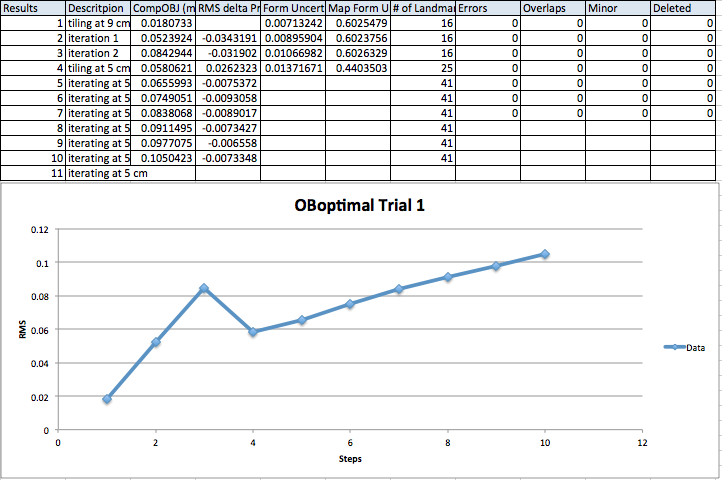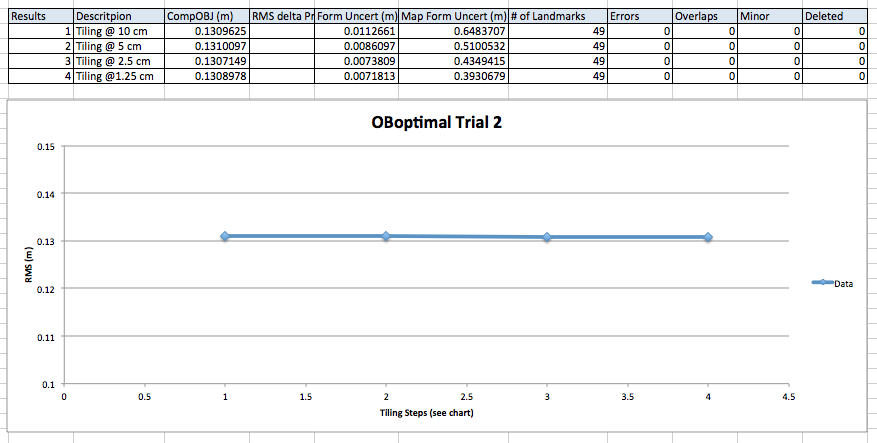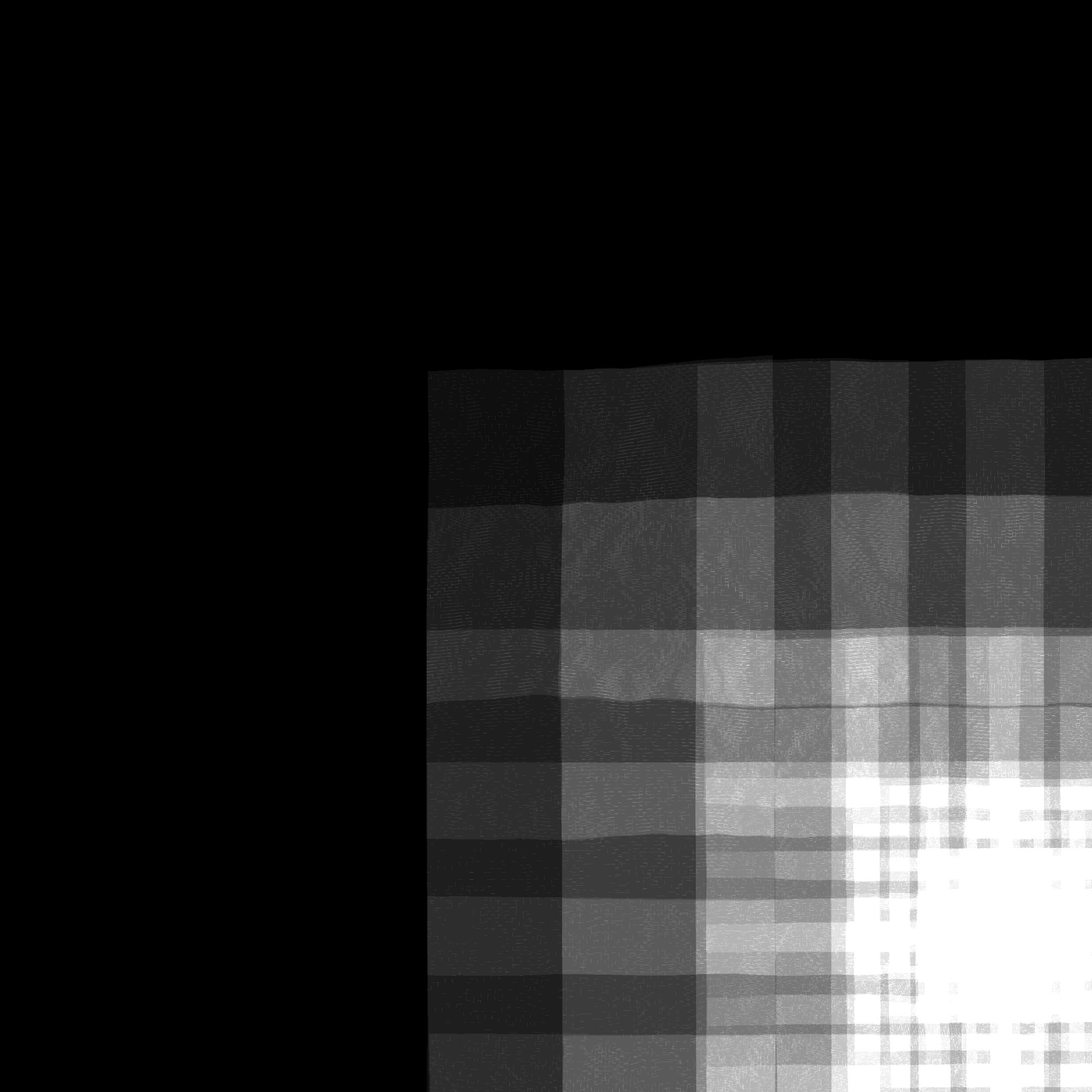Kris' Results/Conclusions
Trial 1

The RMS clearly goes up during iteration and shows no sign of convergence. The low RMS directly after the first tiling step was encouraging, but after closer inspection it was found that the evaluation bigmap my not have been up to par. To clarify, the evaluation bigmap used during trial 1 was only 76 by 76 cm while the truth bigmap was 25 by 25 meters. Therefore, a reason ,other than the RMS not decreasing and converging after iterations, is that the evaluation bigmap was too small compared to the truth bigmap for CompareOBJ to calculate a feasible RMS.
Trial 2

For Trial 2 iterations were not performed, due to the belief that iterations are not efficiently decreasing the RMS between the evaluation bigmap and truth bigmap. However, the evaluation bigmap being so small compared to the truth bigmap may have caused the faulty iterations during Trial 1. Nonetheless, Trial 2 still produces interesting results. The RMS consistently stays around 13 cm when tiling is performed from 10 cm down to 1.25 cm.
For this trial the evaluation bigmap (ULTRA7) is 15 by 15 m and the truth bigmap (T-ULT7) is 20 by 20 m. However, only the 10 cm maplets covered the evaluation bigmap during this test because the evaluation bigmap and tiling bigmaps were not centered on the same attitude and longitude. The picture below shows ULTRA7 coverage for 5 cm maplets.

One last thing worth mentioning is that when the ULTRA7 evaluation map and T-ULT7 truth bigmap were compared using ComparOBJ in the Trial 1 directory the RMS calculated was .18686 m, which makes sense according to Trial 2's numbers. That is because the iterations in Trial 1 could cause the RMS to increase from 13 cm to 18 cm.
